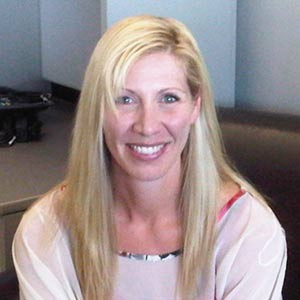
Kathy Rolfe
Having served in the military and as a police officer, Kathy Rolfe understands what first responders encounter on a daily basis. Today, she runs a private psychology practice in which she primarily sees first responders and military members and focuses on trauma and occupational stress injuries.
Kathy has now joined us an instructor in the First Responders Trauma Prevention and Recovery program, where she teaches the course on Organizational Structure and Stigma Reduction.
What motivated you to get involved with the SFU first responders program?
I heard about the program and knew I just had to be a part of it. In the 20-plus years that I was a police officer, I saw and experienced a lot of terrible things—both on the street and within the walls of the organization, both personally and by watching my colleagues struggle as well. I knew I had to help, and I thought that raising awareness and empowering people within the first responder community is such a fantastic way to do that. This is what this certificate offers, and I am so excited to instruct at SFU.
In what ways do you bring your own lived experience to the online classroom?
Both my husband and I have been in the military and worked as first responders for over 20 years with the Edmonton Police Service (EPS), and he remains a police officer to this day. So, I still get to hear all of his stories when he comes home. As I interact with the students, I can tell you that while every first responder organization is unique to its own profession, things like culture, trauma and stigma span across them all. We all show up at the same kinds of calls. We all need to try and cope within the perceived confines of stigma, cultural constraints and—at times—a mental health program that has a lot of gaps.
In this I find that I am able to relate to what the students relay relative to their own issues and concerns that they have garnered both organizationally and during the course of their duties. As there was really not much in place when I started at EPS in 1999, it was neat to watch a mental health program grow and develop there.
Why is it important for first responders to learn about stigma in the workplace?
I think that every first responder becomes aware of stigma very early on when they start on the job. Not wanting to appear as “weak,” and hiding how they are feeling for fear of judgement or rejection is exactly what causes them to be injured, and it is such a vicious cycle. It’s so important for students to know that this cycle can be changed, and that by allowing themselves to be vulnerable—and/or being a safe place for someone else to come and talk about how they are feeling—is exactly what needs to happen to counteract stigma and shift the culture. First comes awareness, then comes change.
What has been the response from students to your course?
I’ve been so lucky to have so many great students who are willing to share their own experiences and, at times, even their frustrations. They are so supportive of one another and they provide such wonderful and positive feedback both to me and one another. It’s truly inspiring... they are truly inspiring!
What do you hope students will take away from your course?
I hope that they can take away that they are not alone in their quest for change and understanding. The first responder mental health movement is a big animal, and they are such a wonderful part of it. I also hope that they take away that nothing is unchangeable. The whole point of my course specifically is to identify gaps in existing mental health programs and the issues within their organizations that are serving as barriers to stigma reduction and cultural change. They can be part of the change!
Even over the past decade, so many things have shifted in the first responder world relative to normalizing mental health concerns, and they can keep that momentum going. They can help themselves and others by creating dialogue and working toward seeing better and more efficient mental health systems in place. It’s empowering.
What do you find most rewarding about teaching in this program?
I’m humbled by the openness of the students and the fact that I am able to interact with first responders from all over the world. It’s great to be part of a program that is geared toward all of us taking good care of ourselves and one another. What a fantastic message!

